Sharing with the press, National Assembly Chairman Vuong Dinh Hue said that 2023 is a year with a huge workload, the frequency of activities of the National Assembly is probably the greatest in the 15th term. According to the Constitution, the National Assembly will meet twice a year; but in 2023 alone, there will be 5 sessions, including 2 regular and 3 extraordinary sessions. The National Assembly Standing Committee also met about 20 times, including regular sessions, legal thematic sessions and the days between sessions. Not to mention 2 conferences of full-time National Assembly deputies and many national thematic sessions, including the first conference to deploy laws and resolutions of the National Assembly. Since the beginning of the 15th term, the National Assembly has had 6 regular sessions and 5 extraordinary sessions. The total number of sessions in the first 3 years of the term is almost equal to the number of sessions of a previous National Assembly term.
"Many people ask us: why does the National Assembly still work on holidays and Tet, and why is the light still on late at night? With such a workload, if we don't work, we cannot meet the demand. Submitting draft laws and resolutions at midnight and early morning is normal. We do not want to work hard, and we do not want National Assembly deputies and colleagues in the agency to work hard, but because the workload is large and people are still the same, we have to try to meet practical requirements. The National Assembly not only strives to be more democratic, professional, and increase the rule of law, but also must be very flexible, dynamic, innovative, carrying the breath of life, closely following the practical situation of the country," the National Assembly Chairman shared.
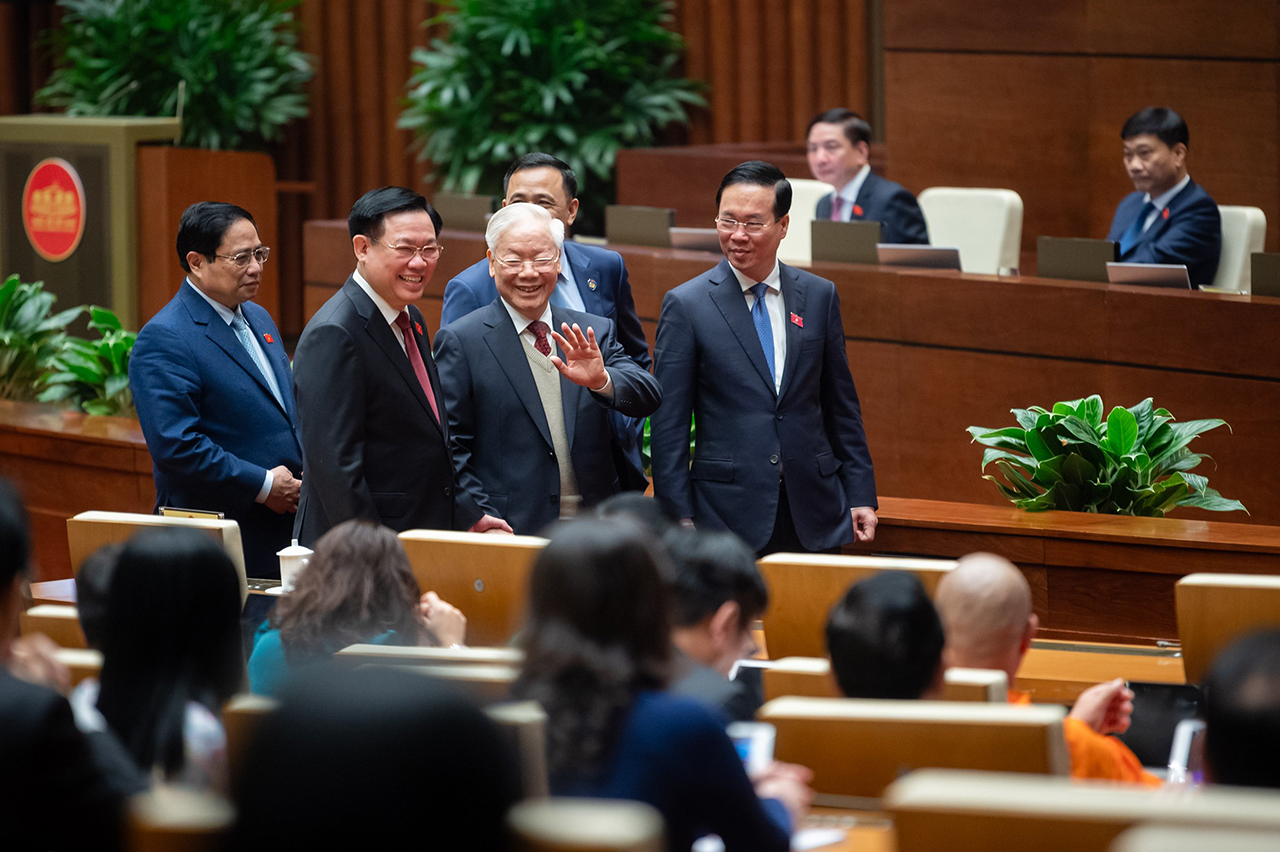
General Secretary Nguyen Phu Trong and Party and State leaders attend the 5th extraordinary session of the 15th National Assembly
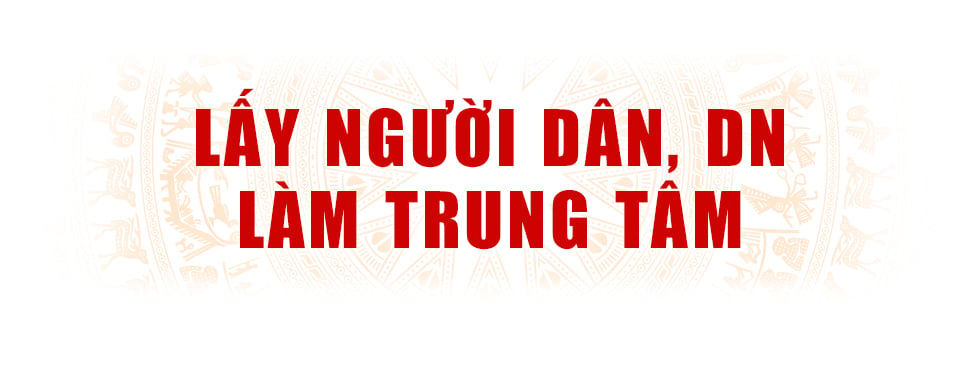
*The dynamic, innovative spirit, carrying the breath of life that the Chairman of the National Assembly just mentioned, is demonstrated through the efforts of the National Assembly and its agencies throughout 2023?
Chairman of the National Assembly Vuong Dinh Hue: Over the past year, the National Assembly continued the spirit of proactive legislation, development creation and long-term vision. In addition, it has resolved immediate difficulties through resolutions and piloted a number of urgent issues. For example, the National Assembly has not yet passed the two draft laws on the amended Land Law and the amended Law on Credit Institutions at the 6th session at the end of 2023, in order to have time to review and thoroughly complete them for submission to the National Assembly for approval at the 5th extraordinary session. We do not chase quantity, although urgent, quality is always the most important requirement, not hasty, not hasty. Because both the amended Land Law and the amended Law on Credit Institutions are very important, having a profound impact on all aspects of socio-economic life and people. Postponing the passage of these two laws has helped agencies to review and thoroughly complete them before they are passed by the National Assembly at the 5th extraordinary session.
Or the National Assembly passed the Resolution on additional corporate tax according to the regulations against global tax base erosion (commonly known as global minimum tax - PV) at the 6th session (late 2023). At the same time, the National Assembly also decided to add to the general resolution of the session on the establishment of an investment support fund from collected global minimum tax and other legal sources to support investment for strategic corporations and projects, not only for foreign corporations and enterprises but also for Vietnamese enterprises.
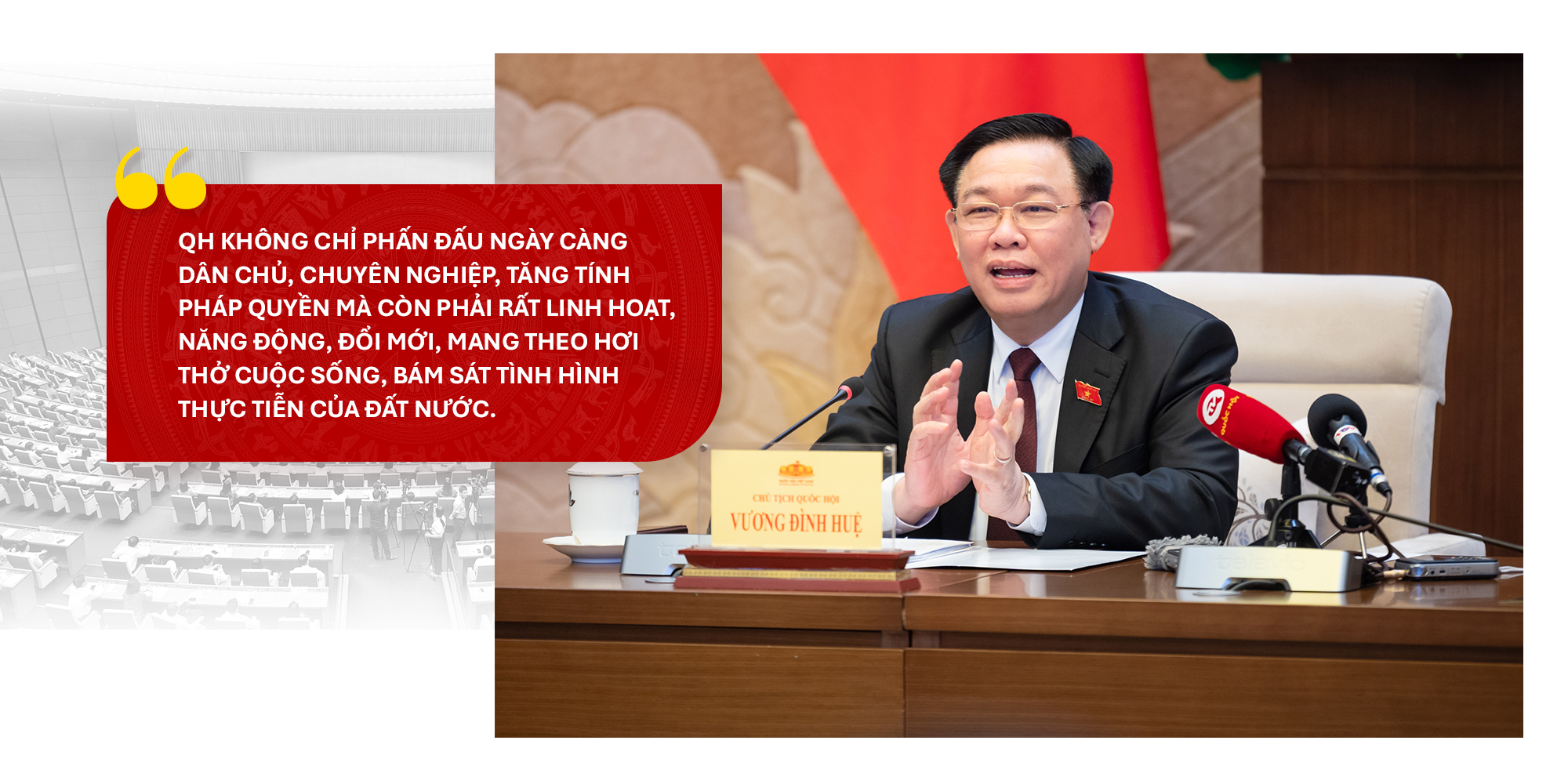
Previously, the Government had submitted two draft resolutions: one was the global minimum tax resolution; the other was the resolution on applying policies to encourage investment in high-tech sectors. However, the second resolution was not approved by the Standing Committee of the National Assembly twice but could not be submitted to the National Assembly. Because the preparation of annual budget estimates to spend on this or that corporation how much cash to support investment attraction is unprecedented. It is very difficult, and no country has done it yet.
On the first day between the two sessions of the 6th session, I sat down to work with the agencies, suggesting that the resolution on the global minimum tax still be presented; and at the same time, including in the general resolution of the session the assignment of the Government to establish an investment support fund for both domestic and foreign enterprises using this source. Because spending from the fund is very feasible, easy to implement instead of spending from the budget estimate as the Government planned, and there will be more time for the Government and the National Assembly Standing Committee to prepare in detail. All agencies agreed, when the report was reported, the Prime Minister was very excited, even calling me in the middle of the night... This is one of the typical examples of "pulling in and pulling out artillery" in law-making to deal with arising situations, meeting the requirements of life, the requirements of development creation...
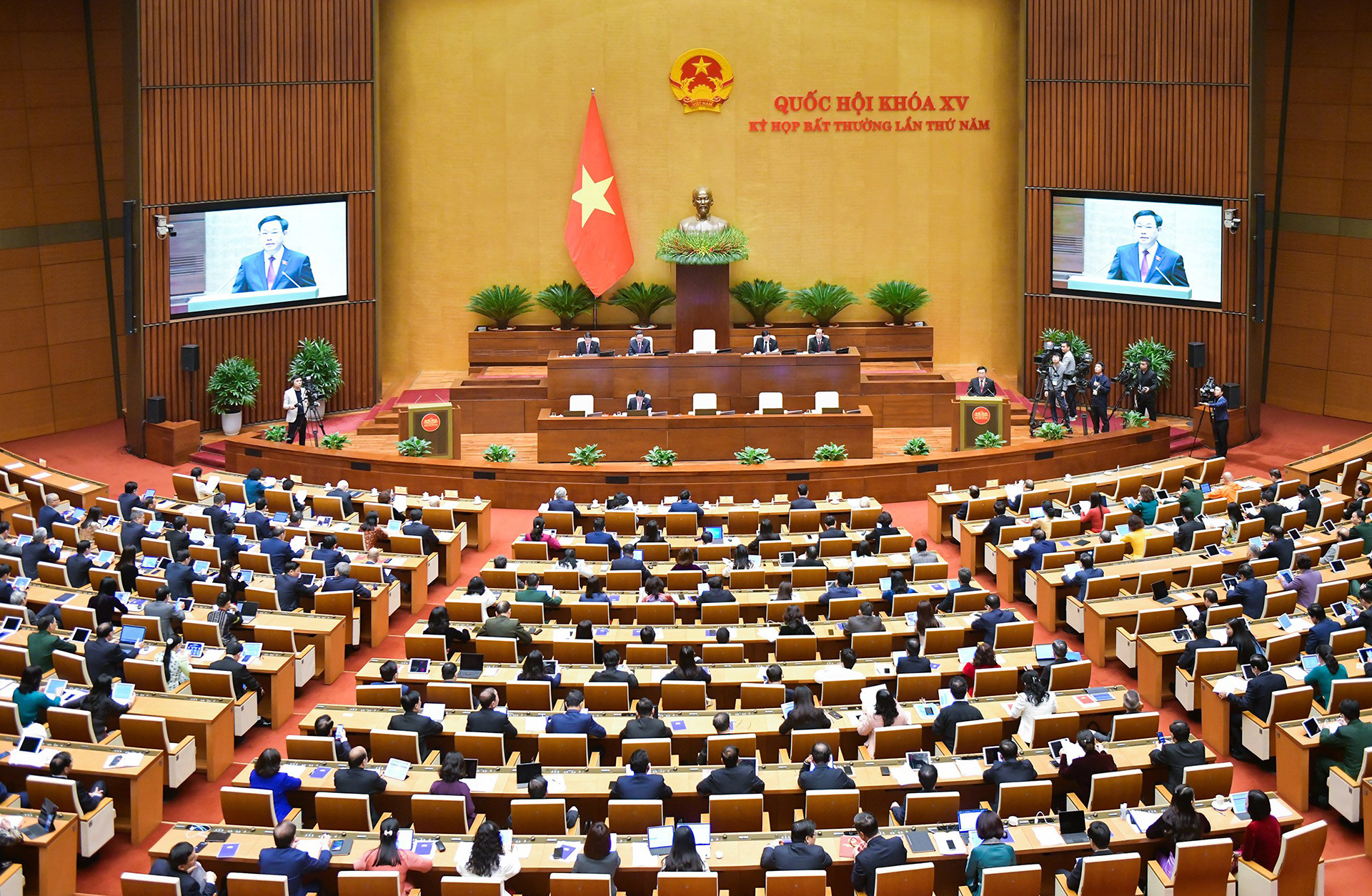
The National Assembly Chairman delivered the opening speech of the 5th extraordinary session of the 15th National Assembly.
*How have the efforts of the National Assembly and National Assembly agencies in law-making contributed to removing difficulties, accompanying and sharing with the Government, businesses and people?
NA Chairman Vuong Dinh Hue: Law making is always associated with implementation and enforcement. In the past, we often said that implementation is always the weak link. Last year, for the first time, the NA organized a conference to deploy laws and resolutions of the NA, which will later become a routine to promote implementation. Recently, there has been a situation where a group of officials shirked responsibility, were afraid of responsibility, afraid of mistakes, did not dare to do things, did not do things thoroughly; blamed everything on legal policies, overlaps, and contradictions. To clarify this, the NA requested a general review of the legal system. The NA Standing Committee and the Government both established two working groups, operating in parallel and independently, to review more than 600 legal documents, decrees, and circulars in all areas of life.
The conclusions from the two working groups are completely consistent, showing that our legal system basically ensures consistency, uniformity, transparency; complies with the Constitution and regulations, commitments as well as international treaties. Of course, practice always precedes the law, requiring amendments and supplements to the legal system to meet the reality is completely normal. But clearly the main problem lies in the implementation stage, there is no such thing as overlaps, contradictions, loopholes that make it impossible for officials to do it.
Next year, the National Assembly resolution requires a comprehensive review of administration, especially administrative procedures. Now, people keep saying that "sub-licenses" are being created. Is that true and to what extent? This will have to be clarified. Many people ask, now, people and businesses are being said to be at the center, where and how? I would like to say that all the above policies are at the center of the people and businesses. That is, perfecting the legal system, promoting administrative reform, and improving the investment and business environment.
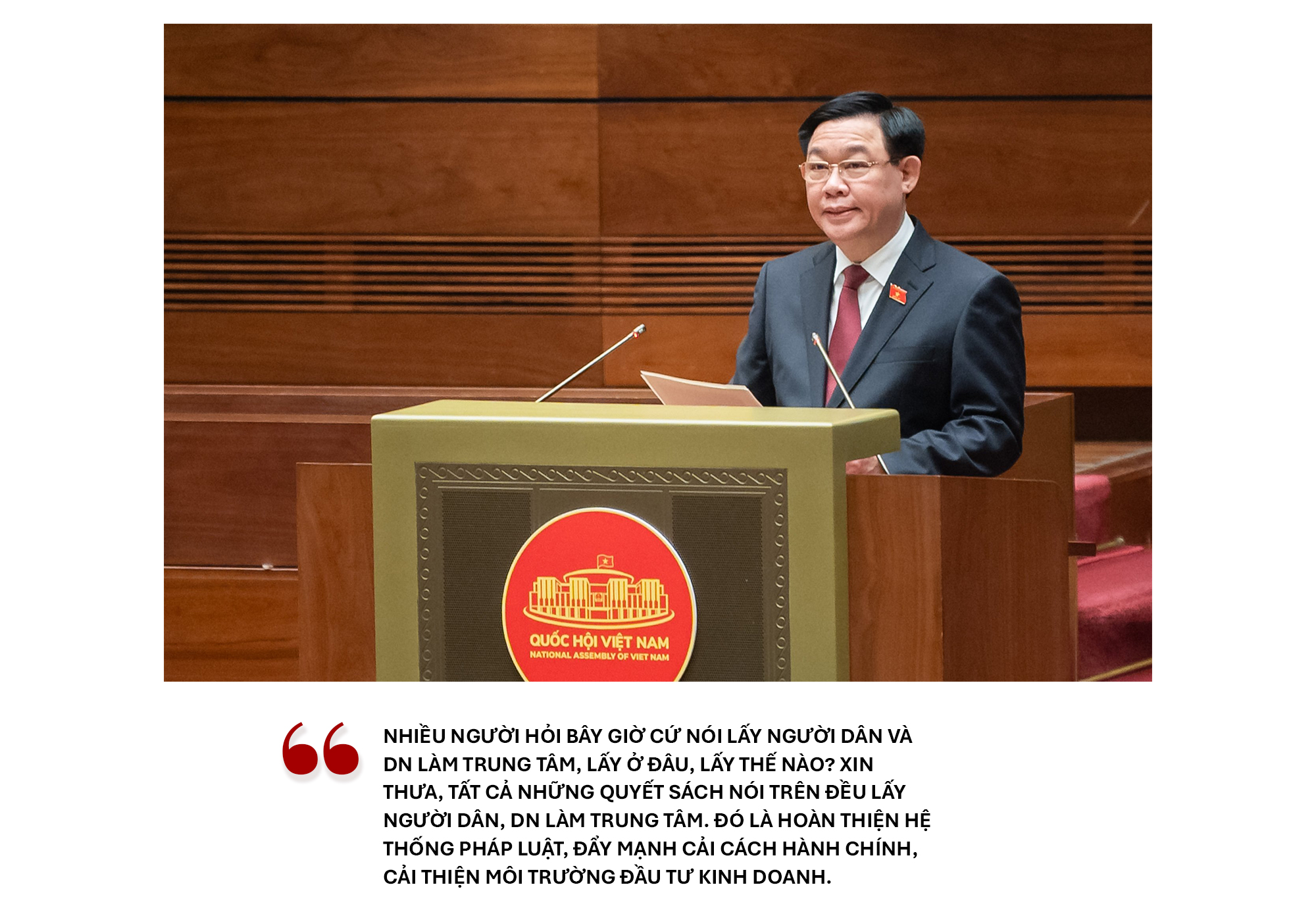
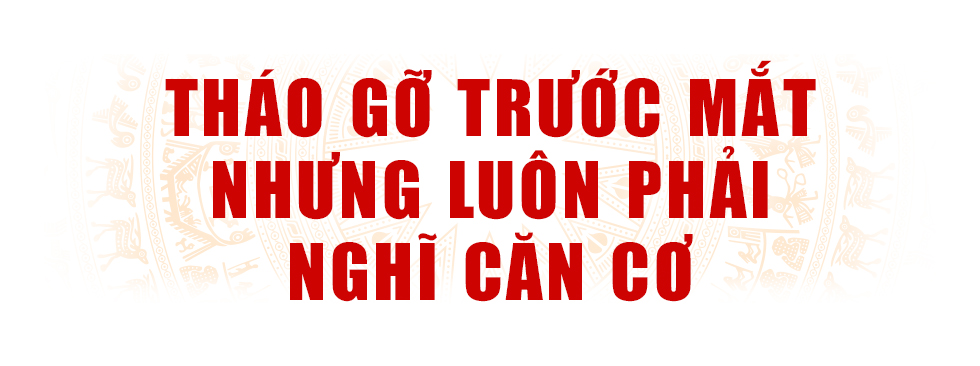
*Also related to perfecting the legal system, at the recent 6th session, many delegates suggested that instead of struggling to remove bottlenecks and bottlenecks, it is time for a "new mechanism". As the head of the legislative body, what is your vision of this "new mechanism"?
NA Chairman Vuong Dinh Hue: We must look at the problem from both sides. On the one hand, we must focus on removing immediate bottlenecks, but on the other hand, we must always think about fundamental, long-term issues. The Party's policy is that any issue that is urgent, mature, clear enough, and has received high consensus should be legalized for implementation. Urgent issues that are not yet mature, clear enough, and have not yet received consensus should continue to be studied. Any issue that is allowed to be piloted by the competent authority should be piloted.
Policies and institutions are not made for fun, and if they cannot be done, they must be abandoned. Therefore, we must be extremely careful. The desire is great, but the law cannot satisfy everyone, especially local interests and interests that are not in line with national interests. Resolution 27 on building a rule-of-law state has clearly stated that any issue that is unclear or not yet mature should be studied on a pilot basis. But the pilot must have a scope, address, and control, not a new law parallel to the existing law. Any "new coat" must follow that principle. It must be universal, meeting the requirements of rapid and sustainable development of the country.
Many people also say that this term is an "experiment", a "pilot term". It is right to increase the pilot, but not everything is piloted. I also want to emphasize that policy reform, breaking barriers, and making breakthroughs at the national level of governance are not as simple as with corporate governance. Therefore, while solving immediate problems, we must always think fundamentally and long-term. We cannot let the immediate cause ruin the fundamental, long-term cause, but we cannot only look at the long term and ignore the immediate cause.
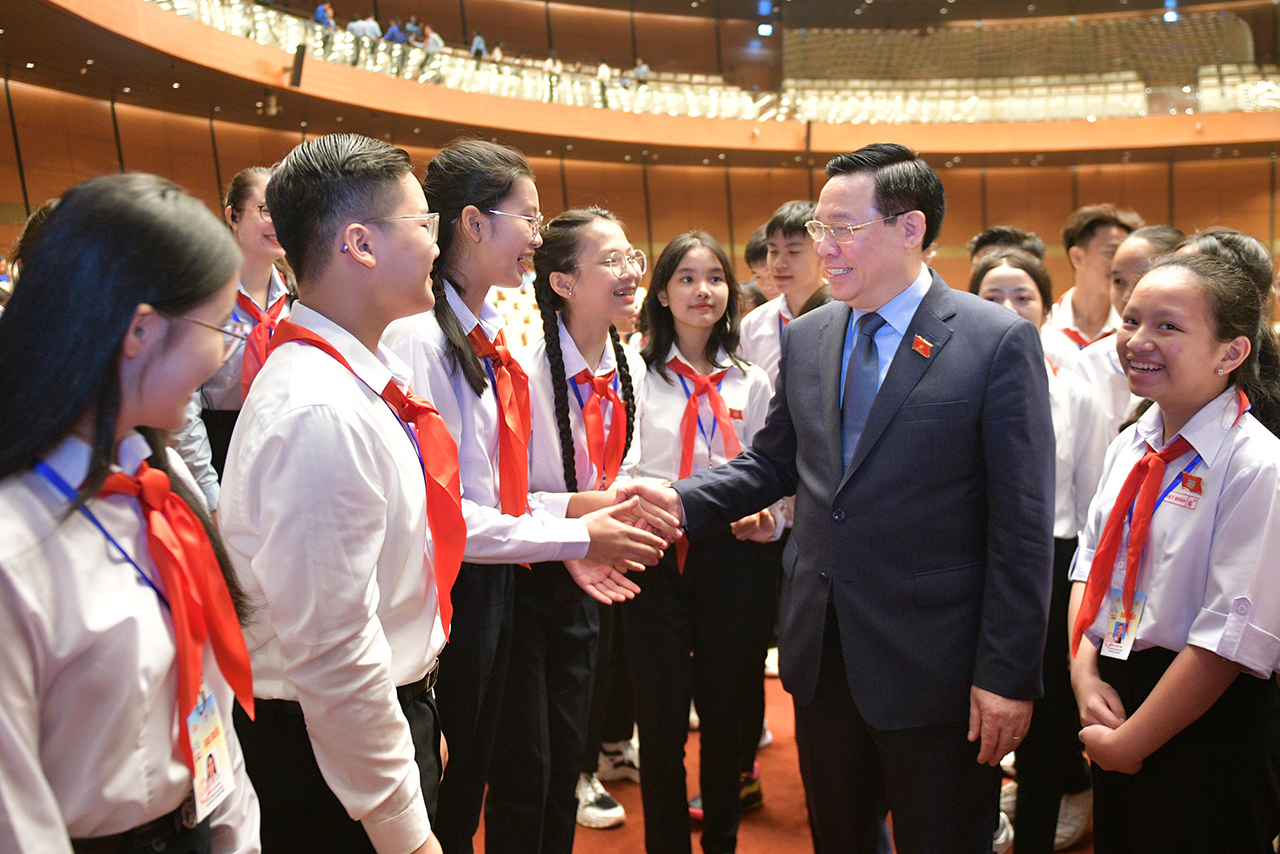
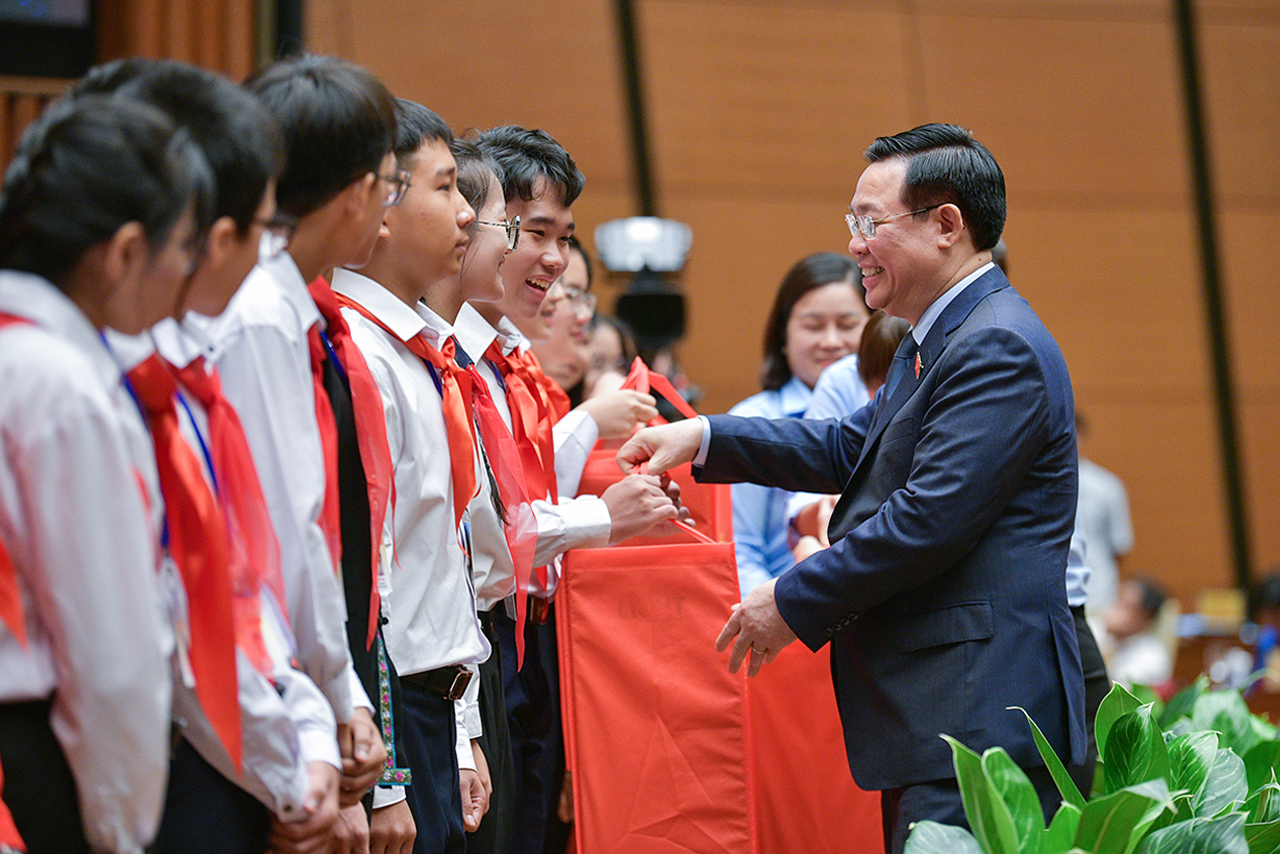
National Assembly Chairman Vuong Dinh Hue attends the first mock session of the "Children's National Assembly" - 2023
*In addition to legislation, a very important function of the National Assembly is supervision. At the first session of the 15th National Assembly, General Secretary Nguyen Phu Trong requested "continuing to innovate and improve the effectiveness and efficiency of supervision activities, especially thematic supervision and questioning activities". What innovations has the National Assembly made and will make to implement the General Secretary's direction?
Chairman of the National Assembly Vuong Dinh Hue: The National Assembly and the National Assembly Standing Committee always focus on orienting their work in the spirit of the General Secretary's direction, which is to take supervision and innovation of supervision as the central and key step to innovate the organizational activities of the National Assembly. We have devoted a lot of effort and determination to promptly amend the Law on Supervisory Activities of the National Assembly and People's Councils, and include it in the 2024 law-making program; we must do it in a way that is realistic, feasible, substantial, effective and efficient.
In 2022, a resolution guiding the supervision work of the People's Council was issued, which is considered a handbook, resolving many difficulties of the People's Council at the provincial level. By 2023, the Standing Committee of the National Assembly continued to develop a resolution guiding the implementation of the explanation sessions of the Ethnic Council and the agencies of the National Assembly. In fact, many supervision and explanation sessions were completed without conclusions or resolutions, thus having no effect. This time, the Standing Committee of the National Assembly is determined to do it; it must create a strength for the Ethnic Council and the agencies of the National Assembly, which is both a power and a responsibility.
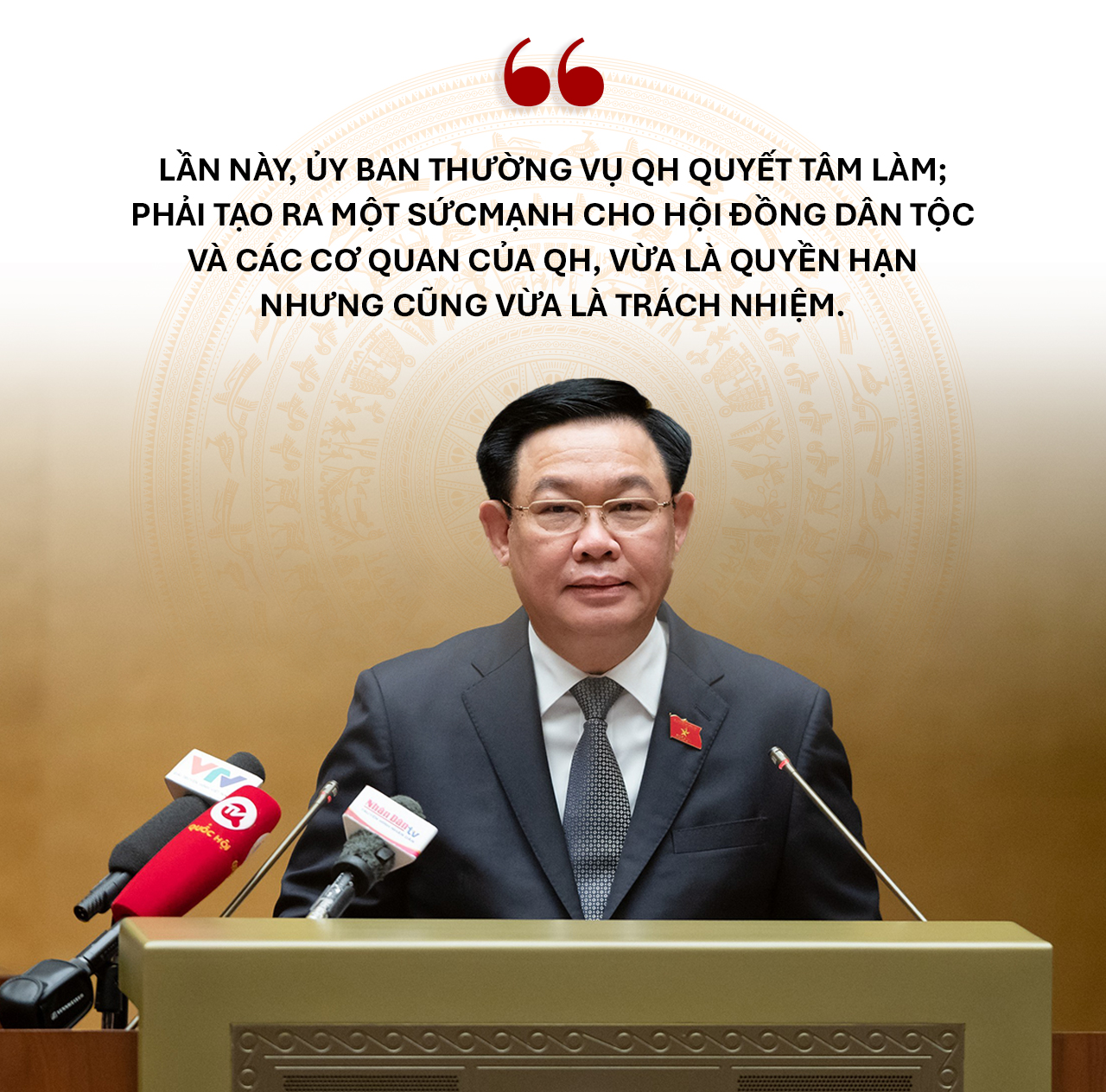
Regarding thematic supervision, the philosophy of the Standing Committee of the National Assembly and the Chairman of the National Assembly is to supervise but also to create development. Supervision work focuses on monitoring activities, that is, monitoring what is happening, not just finishing and then sitting down to do post-audit.
With the above spirit, in 2024, the National Assembly will conduct thematic supervision of the real estate and housing market. Some people say that the revised Law on Real Estate Business has just been issued by the National Assembly, so why should we supervise? But that would be great, because when the law was drafted, issues related to institutions and policies were summarized; and from now on, we will focus on implementation and resolving problems if they arise in practice. Only when things are frozen like this do we need to supervise, but when they are operating smoothly, there is no need to do so. The spirit is that supervision is also to create development; the quality of supervision must be increasingly improved, as people often say: "Supervision means to supervise, supervision means to dare".
*Thank you, Mr. Chairman of the National Assembly!
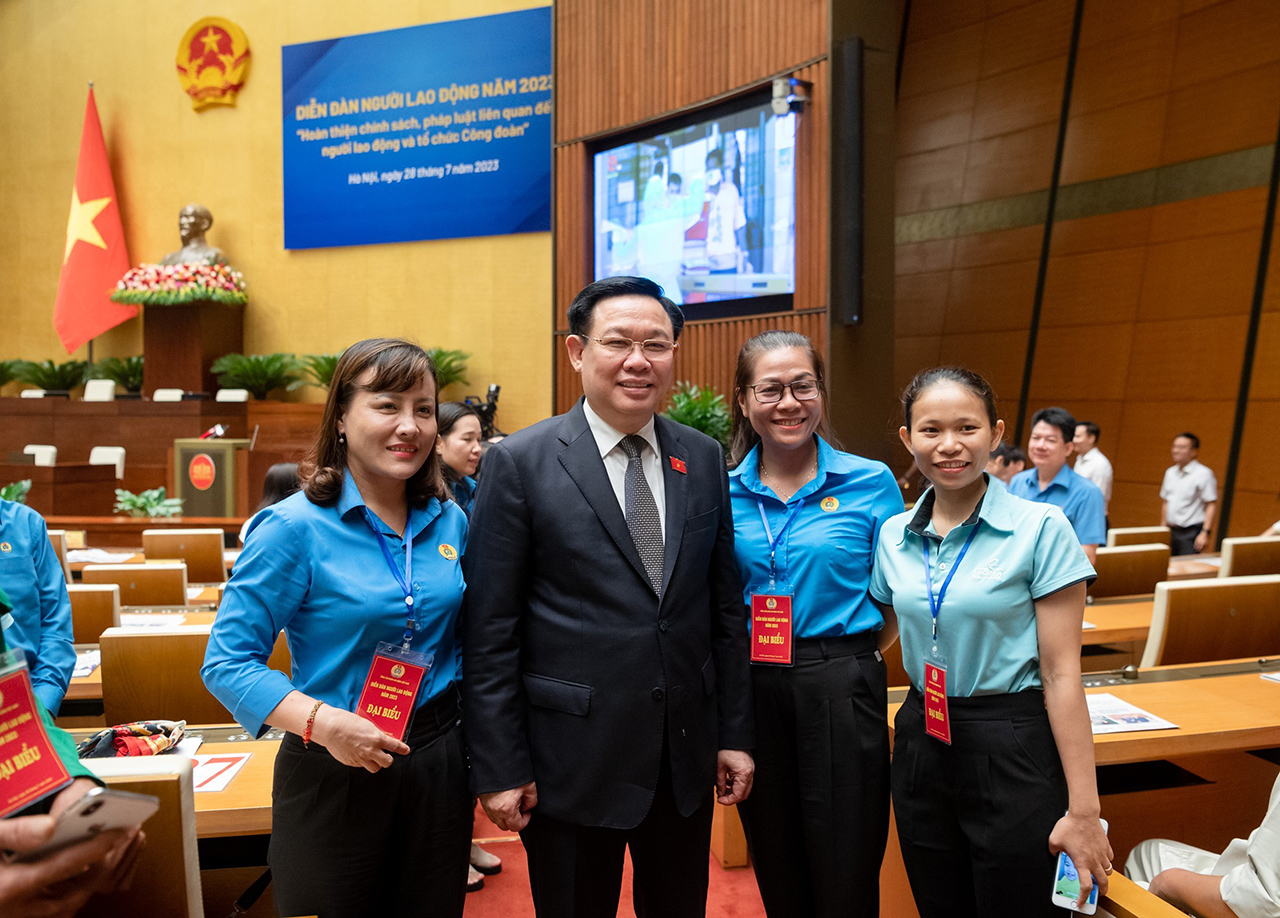
National Assembly Chairman Vuong Dinh Hue chairs the 2023 Labor Forum
Source link


![[Photo] Solemn opening of the 8th Congress of the Central Public Security Party Committee, term 2025-2030](https://vphoto.vietnam.vn/thumb/1200x675/vietnam/resource/IMAGE/2025/10/4/f3b00fb779f44979809441a4dac5c7df)



![[Photo] General Secretary To Lam attends the 8th Congress of the Central Public Security Party Committee](https://vphoto.vietnam.vn/thumb/1200x675/vietnam/resource/IMAGE/2025/10/4/79fadf490f674dc483794f2d955f6045)
![[Photo] Bustling Mid-Autumn Festival at the Museum of Ethnology](https://vphoto.vietnam.vn/thumb/1200x675/vietnam/resource/IMAGE/2025/10/4/da8d5927734d4ca58e3eced14bc435a3)


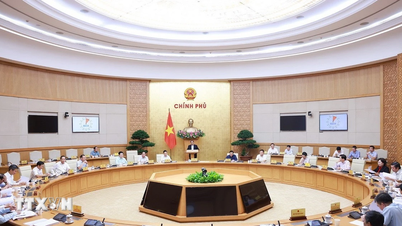







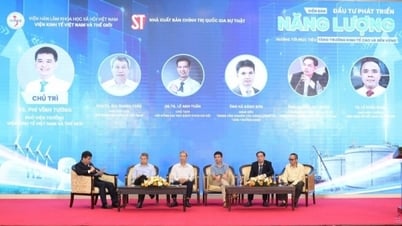




















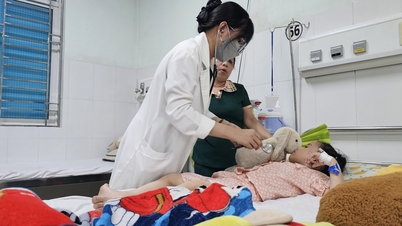
























![[VIDEO] Summary of Petrovietnam's 50th Anniversary Ceremony](https://vphoto.vietnam.vn/thumb/402x226/vietnam/resource/IMAGE/2025/10/4/abe133bdb8114793a16d4fe3e5bd0f12)

![[VIDEO] GENERAL SECRETARY TO LAM AWARDS PETROVIETNAM 8 GOLDEN WORDS: "PIONEER - EXCELLENT - SUSTAINABLE - GLOBAL"](https://vphoto.vietnam.vn/thumb/402x226/vietnam/resource/IMAGE/2025/7/23/c2fdb48863e846cfa9fb8e6ea9cf44e7)





















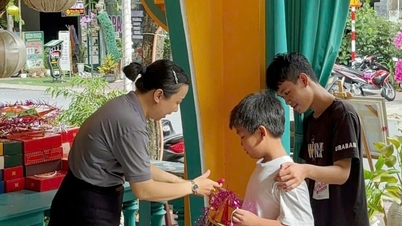












Comment (0)